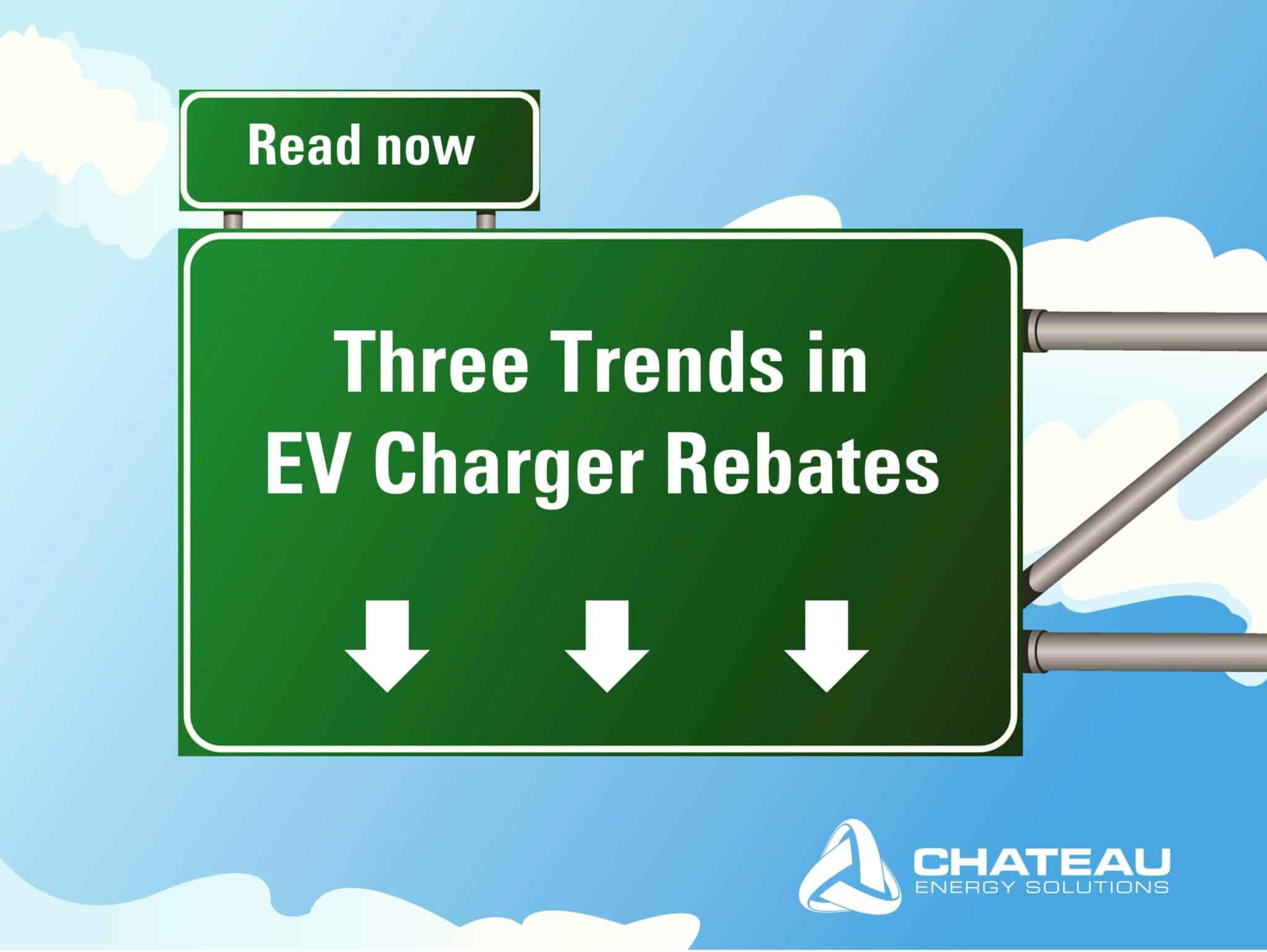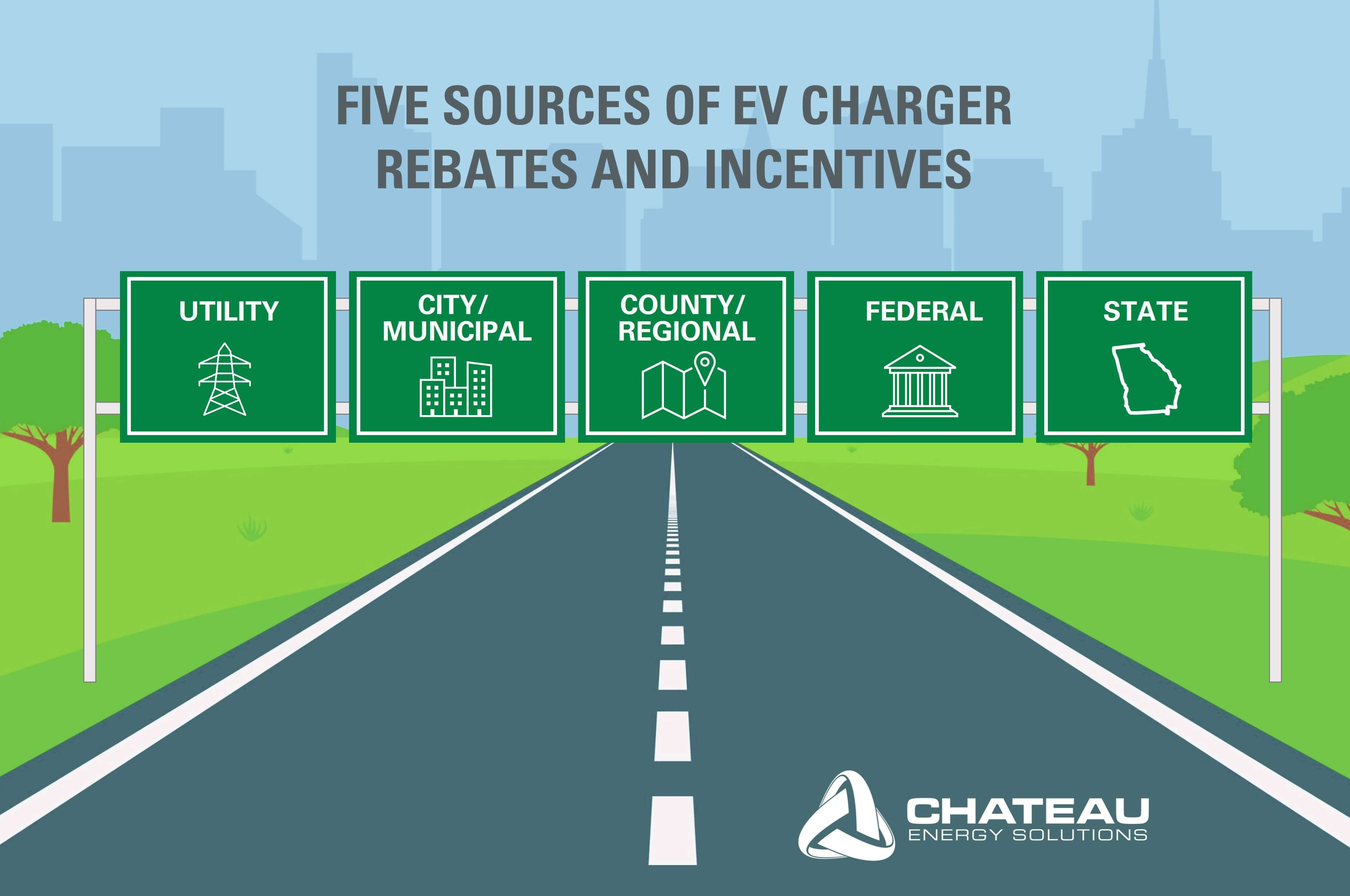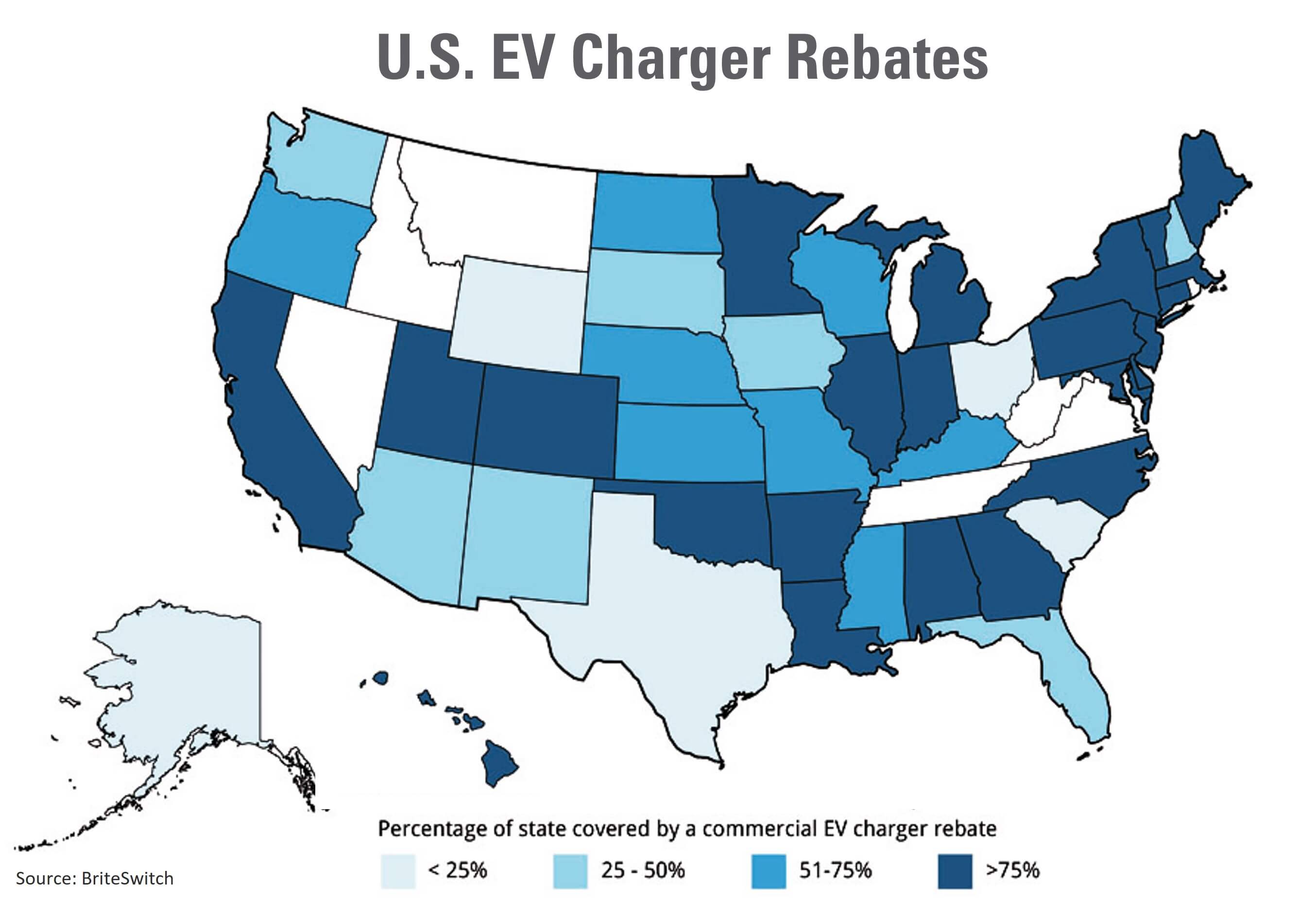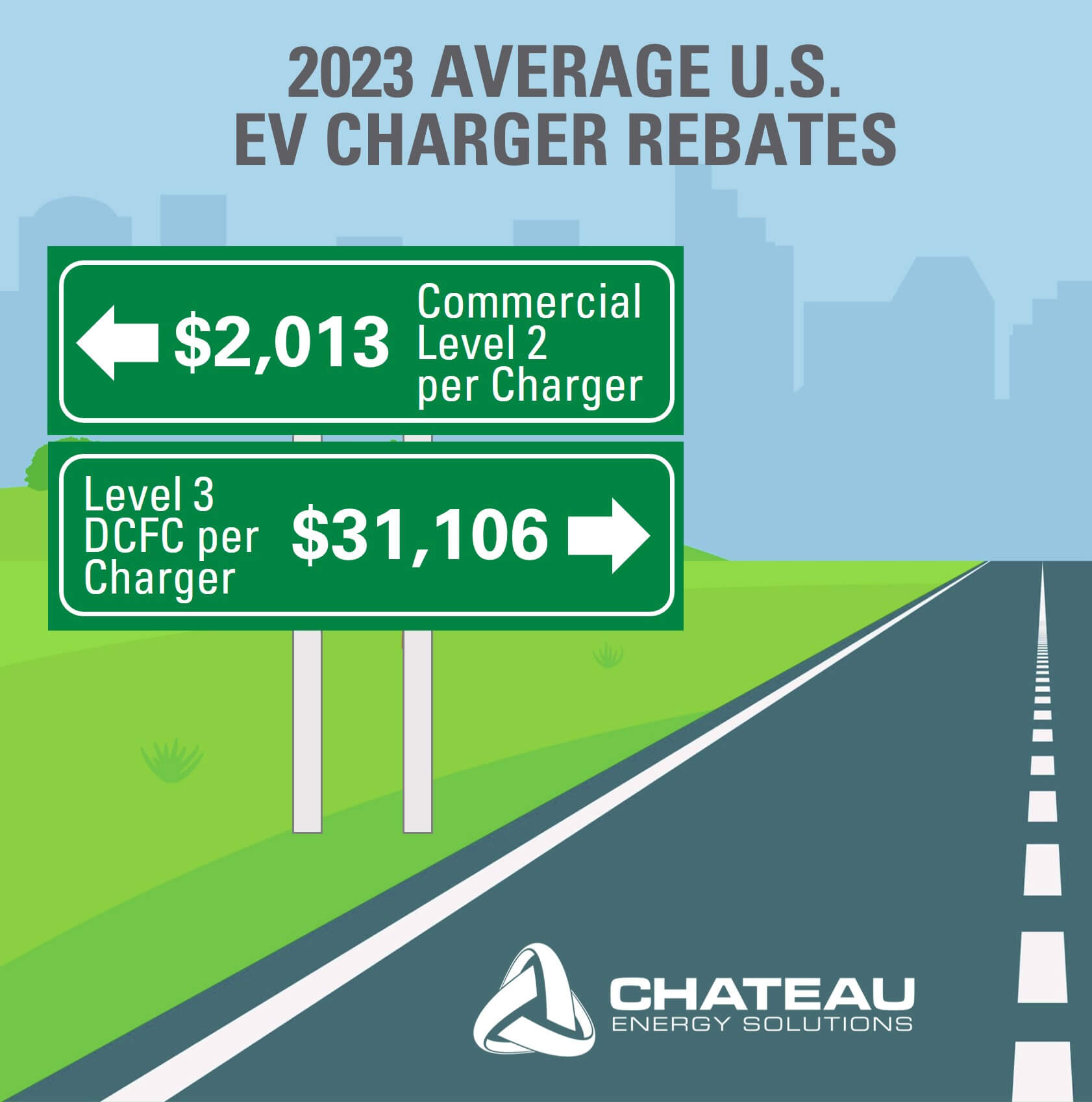
 Posted by Pam Hoddinott
Posted by Pam Hoddinott Installing commercial EV chargers might be more affordable than you would expect – with the help of rebates, incentives, and grants. Numerous EV charger programs are available to help organizations offset the cost of electrifying their fleet.
EV charger rebates offer a financial incentive for organizations to install EV charging stations. These incentives are available from various sources ranging from local to federal government and utilities. Rebates for EV charging stations help offset the cost of transitioning to a commercial EV fleet, making the process more economically feasible.
The world of EV charger incentives is relatively new, and programs are ever-changing. Governments and utilities are offering a variety of rebates and incentive options to assist organizations in making the move to a commercial EV fleet in an effort to reduce transportation emissions.
Chateau Energy’s rebate partner BriteSwitch, a company focusing on rebates and incentives, has identified some EV charger rebate trends offering insight into this developing space. Here are a few to be aware of:
After trying to decipher the EV rebate requirements for themselves, many organizations are left thinking this is far from a joyride. Let’s dive in to get a better understanding:
There are roughly 500 EV charger incentive programs available in the US. This is up 22% compared to last year. The EV charger installation rebate increase comes in both Level 2 commercial and Level 3 or DC Fast Chargers (as well as Level 2 residential).
With five different categories of rebates – utility, city/municipal, county/regional, federal, and state – these programs sometimes overlap. Just as you can stack coupons, you can sometimes stack two incentive programs. However, this isn’t always an option, and you may have to choose the rebate that benefits your organization the most.

The good news is that according to BriteSwith, “70% of the US has an EV charger rebate available.” So, the chances of your EV charger installation being covered by a rebate are pretty good – right? Well, it’s not always an easy answer. Your eligibility for these rebate and incentive programs will differ based on the type of EV charger, when installed, where installed, and so forth.
If you are not eligible today, that doesn’t mean you won’t be in the future. New commercial EV charger installation programs are continually rolled out. Currently, these programs are strong in the West Coast, the Upper East Coast, the South, and the Midwest areas.

The Federal Tax Credit for EV chargers has been around since 2005. When it was renewed in 2022, several new stipulations were also put into place, which added limitations – namely, the location. Today, a site must be in an “approved census tract” to receive a tax credit. These approved locations include low-income or non-urban areas.
“Until the end of 2022, the tax credit was 30% of the project cost up to $30,000 for commercial properties. Now, the base tax credit is 6%, and if installed following prevailing wage and apprenticeship requirements, that multiplies the tax credit by 5, bringing it to 30% of the project cost. Also, the cap for commercial projects has increased from $30,000 to $100,000,” states BriteSwitch.

It is reasonable to anticipate that rebates and incentives for EV charging infrastructure will continue to be strong. Overall, the EV charger installation rebate programs have stayed the same from the previous year. Level 3, or DCFC, rebates increased to $31,106 per charger, up 2% from last year. Level 2 commercial chargers decreased to $2,013 per charger. The decrease was not from existing program declining rebate amounts but from new programs introduced with a lower incentive amount.
Remember a few things as you navigate the winding road of EV charging rebates. New programs can be introduced anytime, and existing programs fluctuate based on funding levels.
While rebate amounts and programs appear to be advancing, working with an EV charging consultant can help weed through the confusing and numerous requirements. EV charging infrastructure consultants will ensure your organization gets the maximum benefit of a rebate program. As you have probably determined, EV charger rebates and incentives are much more challenging than lighting or HVAC rebates.
The Chateau Energy team of experts uses cutting-edge technology to help determine commercial EV charger installation incentives, rebates, and grant eligibility. Plus, Chateau Energy will manage the entire process for you. We will:
Contact Chateau Energy for all your EV Charging infrastructure needs.
Chateau Energy Solutions Making Energy an Asset®
Ready to get started on the path to energy efficiency and sustainability?